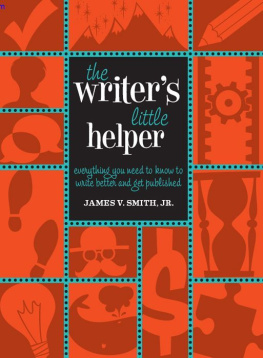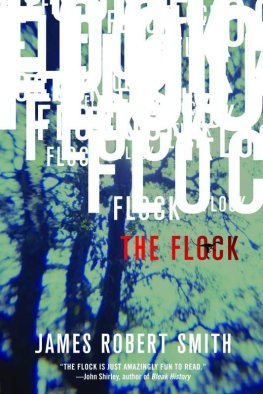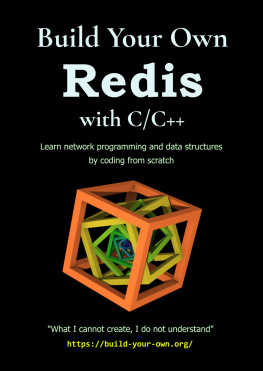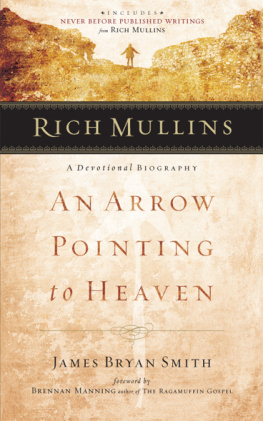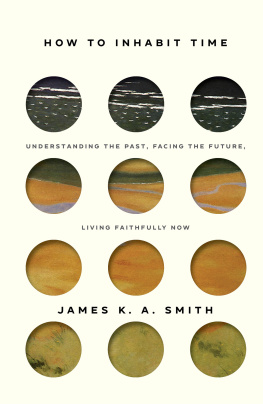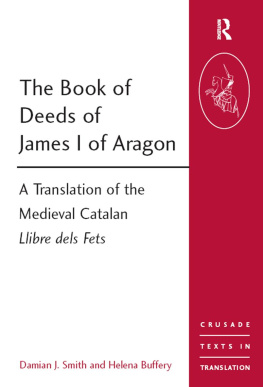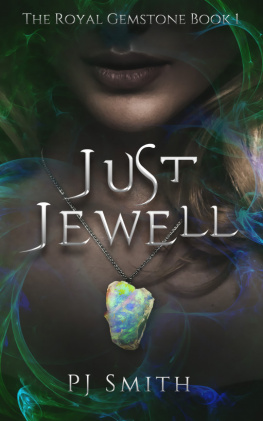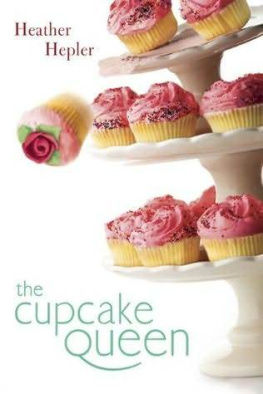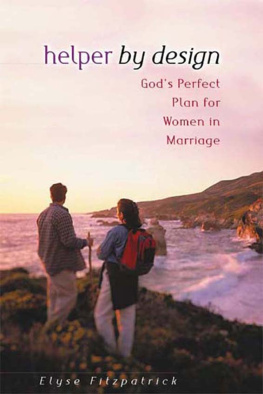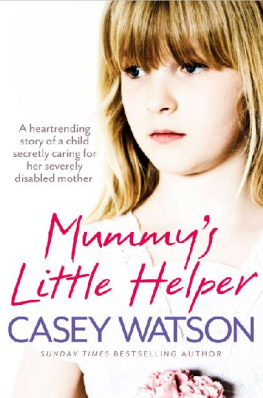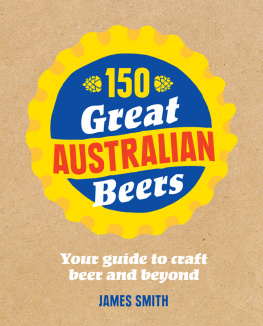James V. Smith - The Writer’s Little Helper
Here you can read online James V. Smith - The Writer’s Little Helper full text of the book (entire story) in english for free. Download pdf and epub, get meaning, cover and reviews about this ebook. year: 0, genre: Detective and thriller. Description of the work, (preface) as well as reviews are available. Best literature library LitArk.com created for fans of good reading and offers a wide selection of genres:
Romance novel
Science fiction
Adventure
Detective
Science
History
Home and family
Prose
Art
Politics
Computer
Non-fiction
Religion
Business
Children
Humor
Choose a favorite category and find really read worthwhile books. Enjoy immersion in the world of imagination, feel the emotions of the characters or learn something new for yourself, make an fascinating discovery.
- Book:The Writer’s Little Helper
- Author:
- Genre:
- Year:0
- Rating:4 / 5
- Favourites:Add to favourites
- Your mark:
- 80
- 1
- 2
- 3
- 4
- 5
The Writer’s Little Helper: summary, description and annotation
We offer to read an annotation, description, summary or preface (depends on what the author of the book "The Writer’s Little Helper" wrote himself). If you haven't found the necessary information about the book — write in the comments, we will try to find it.
The Writer’s Little Helper — read online for free the complete book (whole text) full work
Below is the text of the book, divided by pages. System saving the place of the last page read, allows you to conveniently read the book "The Writer’s Little Helper" online for free, without having to search again every time where you left off. Put a bookmark, and you can go to the page where you finished reading at any time.
Font size:
Interval:
Bookmark:
writers
little
helper
everything you need to know to
write better and get published
JAMES V. SMITH, JR.

For Sue.
For nudging me along.
And for squandering your considerable inheritance
in buying my books by the truckload.
Sometimes you need a lot more than ideas and talent. Sometimes you simply must get lucky. As I have been in sliding down the chute and landing in the midst of earnest, friendly professionals.
At Writers Digest
Thank you, Jane Friedman, for calling me back from the brink of disaster. How did you know? And how did you have just the right words of inspiration?
Thank you, Michelle Ruberg, for your insights and instincts in handling the output with such grace under pressure. Where do you get the patience?
Thank you, Claudean Wheeler, for your way cool design. Where do you get these wild ideas? And speaking of wild ideas
At the Peter Rubie Literary Agency
Thank you, Peter Rubie, for calling at just the moment I was struck with a wild idea. Or was it you who had the wild idea? No matter. Thank you.
CONFLICT: THE INDISPENSABLE ELEMENT OF FICTION
This book hits the technical aspects of writing fiction from the point of view of giving readers what they want in a bestseller.
 INSPIRE YOU. Of course, Ill try to do that. Any book like this first has to give you a feeling of, I can write and sell a novel. I want to do it. I will do itoutta my way. Ive tried to inspire you.
INSPIRE YOU. Of course, Ill try to do that. Any book like this first has to give you a feeling of, I can write and sell a novel. I want to do it. I will do itoutta my way. Ive tried to inspire you.
 ANSWER YOUR TECHNICAL QUESTIONS. You want to know how to write characters that compel. You have questions about plots, setting, style, story, structure, and dialogue. Good topics all, and well address them, but not as other how-to books do. Where this book differs is in its point of view.
ANSWER YOUR TECHNICAL QUESTIONS. You want to know how to write characters that compel. You have questions about plots, setting, style, story, structure, and dialogue. Good topics all, and well address them, but not as other how-to books do. Where this book differs is in its point of view.
 GIVE YOU TOOLS. Most writing how-tos use checklists, shortcuts, exercises, and stepstools you can use to write fiction. This book does, too. But again, with that unique twist. While other books tell you what a writer must dofrom a writers point of viewthis one comes at the writer from the angle of what readers say they want a writer to do.
GIVE YOU TOOLS. Most writing how-tos use checklists, shortcuts, exercises, and stepstools you can use to write fiction. This book does, too. But again, with that unique twist. While other books tell you what a writer must dofrom a writers point of viewthis one comes at the writer from the angle of what readers say they want a writer to do.
 INJECT YOUR FICTION WITH A TOUCH OF MAGIC. Admit it. You want a book like this to guarantee you a bestseller. This book will simply tell you how to analyze the needs of readers and show you how best-selling writers meet those needs.
INJECT YOUR FICTION WITH A TOUCH OF MAGIC. Admit it. You want a book like this to guarantee you a bestseller. This book will simply tell you how to analyze the needs of readers and show you how best-selling writers meet those needs.
Whether you write the bestseller depends on the magic in your fiction.
In a word, comprehension. No matter how creative and poetic your writing, if nobody understands it, it might as well be a diseased elm falling in empty forest. So lets focus on comprehension as we talk about writing style. Comprehension begins with choosing comprehensible, precise words. How you put those words together is called effective writing.
One factor affects sentence comprehension more directly than any other:simplicity. And nothing contributes to simplicity like brevity. The shorter a sentence, the greater the comprehension. Period.
When I taught basic reporting to military journalism students for the Department of Defense, I came across a comprehension scale that measured the ability of newspaper readers to understand sentences of varying length. I dont remember the source of the study, and I havent been able to dig it up in my research. But because it had such an effect on me, I remember it so clearly I can reproduce it here with no trouble.

At one extreme, the scale tells you that reader comprehension of one-word sentences is 99 to 100 percent. At the other extreme, readers comprehend one hundred-word sentences at the 1 percent level or less. I know what youre thinking: Isnt that self-evident?
Perhaps. But dont stop there. Hold the illustration at arms length. Notice the nearly straight line formed by the ends of the bars indicating that the longer the sentence, the less the comprehension. You dont often find correlations as direct as this outside mathematics.
Hardly. Im giving you a tool that you can forever implant in the photographic memory section of your fiction-writing brain. From now on, every time you write a sentence, call up that picture. If the sentence you write comes to twenty-five words, you can assumeas a guidethat your readers will comprehend 75 percent of your communication. If you write fifty-word sentencesall other things being equalexpect readers to comprehend only half of what you write. If you dare to write seventy-five-word sentences, you know the percentage of comprehension you can expect to achieve.
Variety. Diversity. Rhythm. Choose your own term, but in general, write in short, direct sentences for the sake of the people who might be more willing to buy your books if they can understand what youre writing.
Forget that rule for the moment. Were talking about comprehension. You cant afford to alienate readers who cant decipher your message. I give you these basic comprehension tools as a starting point for simplicity of style, which leads to greater understanding of your words and ideas among the greatest number of readers. Dont forget, the greater your readership, the more books you will sell.
Popular novelists do write sentences of forty words or more. But rarely back-to-back. You most often find a long sentence bracketed by short ones.
Answer: Singularity. A sentence works best when it expresses a single idea, using no more words than necessary to express that idea.
Sentences come in a variety of shapes and forms. In high school you learned the terms simple, complex, and compound in defining sentence constructions. Ill redefine these terms because youre more interested in writer functions than sterile definitions.
The effective simple sentence states a fact, portrays an act, or paints an image. The writer adds only minimal but relevant clarification. As always, the first job of such a sentence is to move a story forward, if not by action or conflict, then by an image that expands understanding.
A sponge carpet of pine needles covered the trail. (an image of nine words)
Bill grasped her arm. (an action of only four words)
A new fear chilled her skin. (six words of conflict)
Font size:
Interval:
Bookmark:
Similar books «The Writer’s Little Helper»
Look at similar books to The Writer’s Little Helper. We have selected literature similar in name and meaning in the hope of providing readers with more options to find new, interesting, not yet read works.
Discussion, reviews of the book The Writer’s Little Helper and just readers' own opinions. Leave your comments, write what you think about the work, its meaning or the main characters. Specify what exactly you liked and what you didn't like, and why you think so.

